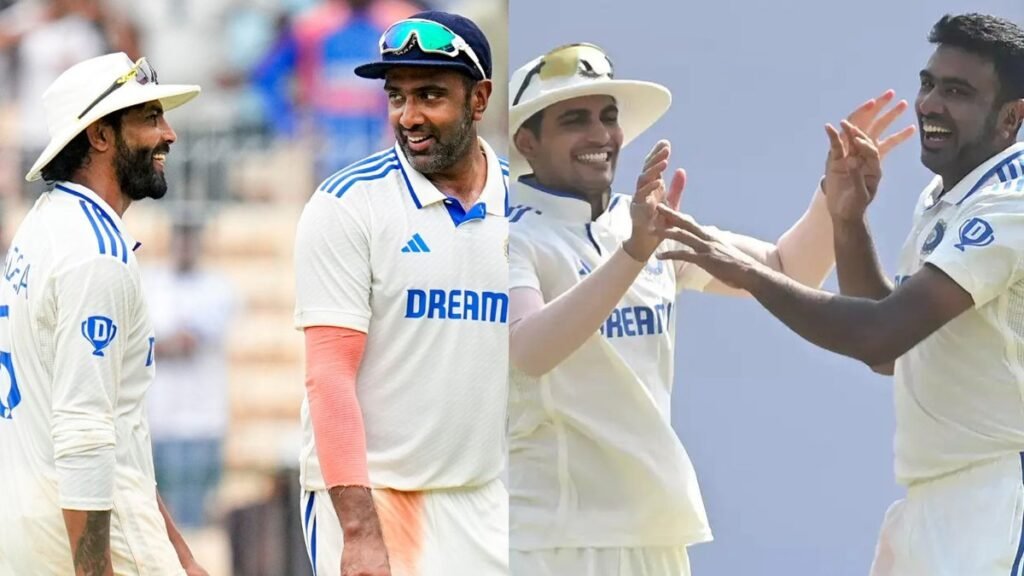
As Indian cricket stands at the cusp of a major transition following the retirement of Virat Kohli and the likely winding down of Rohit Sharma’s Test career, the question of who should lead the side in the longest format has become a hot topic. Amid several names being discussed, veteran spinner Ravichandran Ashwin has offered a strong endorsement for his long-time teammate Ravindra Jadeja to take over the reins.
In a recent conversation, Ashwin made a compelling case for Jadeja’s appointment as Test captain, stating, “The most experienced person in the team is Ravindra Jadeja. If you’re willing to train a new guy for two years and then make him captain, Jadeja can do that for two years too.” His remark brings to the forefront a logical and often overlooked perspective in Indian cricket’s leadership debates — that experience and consistency over time can sometimes be more valuable than potential and future promise.
Jadeja has been one of the most consistent performers for India across formats over the last decade, especially in Test cricket. Known for his reliability with both bat and ball, Jadeja brings balance to the team like few others can. With over 80 Test appearances, more than 3,000 runs, and well over 300 wickets, his all-round credentials are well established. More importantly, Jadeja has been a part of nearly every major Test series India has played in recent years, both at home and abroad, giving him the exposure and tactical awareness needed to lead at the highest level.
Ashwin’s endorsement also reflects a belief that the captain of a national Test side should have deep roots in domestic cricket, an understanding of long-format dynamics, and the ability to command respect across the dressing room. Jadeja, who made his Test debut in 2012, has grown into a dependable figure whose performances speak volumes. His ability to stay calm under pressure and contribute in all aspects of the game makes him a strong leadership candidate.
There is also a broader conversation around succession planning in Indian cricket. Younger players like Shubman Gill and Rishabh Pant are seen as future leaders, but Ashwin suggests it may be premature to thrust them into such a demanding role. The idea, according to him, should be to allow them to develop gradually under the guidance of a senior leader like Jadeja. This, in turn, would provide a seamless transition in the years to come rather than putting the weight of captaincy on shoulders still getting accustomed to the pressures of international cricket.
Jadeja’s brief captaincy stint with an IPL franchise may not have yielded the best results, but leadership in Test cricket requires a different temperament. It’s about longevity, decision-making over five days, and maintaining intensity — areas where Jadeja has excelled for years as a senior player.
As the selectors weigh their options ahead of a challenging home Test season, including a five-match series against England, Ashwin’s call to consider Jadeja seriously for the captaincy cannot be dismissed lightly. With a wealth of experience, proven performances, and a level-headed approach, Jadeja could offer India a stable and seasoned hand during this transitional phase.
In cricket, especially in Tests, leadership is not just about tactics — it’s about presence, belief, and knowing how to win tough sessions. Ravindra Jadeja has done that time and again, and Ashwin believes it’s time he leads from the front.
For more news updates, follow 12B Sports India Facebook .

